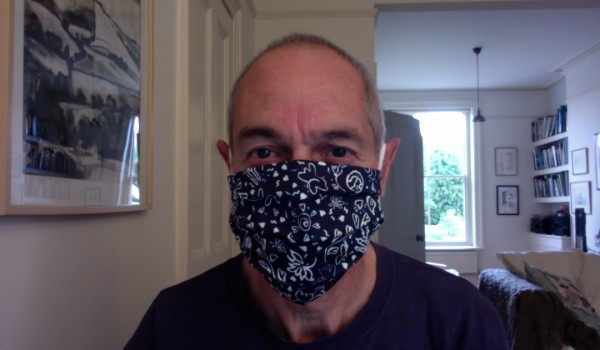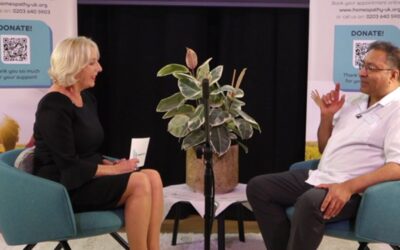GP & homeopath Tim Foster on the changing face of Dr / patient communication.
In the past year the meanings that we give to masks, and to the masked face have changed in so many ways. Before the Covid-19 pandemic, the masked face might indicate a threat, or a secret, at least a reason to conceal identity. Now we have all become mask-wearers, and in this sense it has become normal, or at least commonplace to be masked, but this does not mean that masks do not change us.
When we put a mask on, we may be consciously protecting ourselves, or others, or just following instructions, but when we are face to face with another person, mask wearing inevitably creates some sort of barrier between us.
The potential for mask-wearing to interfere with communication is an important consideration for all health practitioners. We know that, when we are trying to understand our patients and their problems as fully as possible, we are helped by all sorts of clues, but some of the most important rely on reading facial expressions. If we are listening to someone wearing a mask, it is much more difficult to interpret subtle changes of expression.
Practitioners were aware of the importance of looking at faces long before the onset of Covid-19. It is the reason that telephone consultations are often more difficult, and may be less effective, than face to face consulting, but it is also one of the reasons why practitioners should face their patients as much as possible, rather than always looking at the computer screen, during the consultation.
For most practitioners, the adaption to working in the Covid-19 era, in ways that are as safe as possible for patients and staff, has meant choosing between face to face consultations, mostly wearing masks, and remote consultations using Skype or Zoom or other systems such as Doxy.me. In some ways, both remote consulting and face to face consulting with masks, might interfere with the genuine connection between patient and practitioner that lies at the heart of a kind and effective interaction. For some patients, for example those with hearing impairment, both mask wearing and remote consulting may cause particular difficulty. For the moment, there may be no easy way to completely avoid some interference in the consultation from either masks, or the barrier of the computer screen, but if both practitioners and patients are conscious of what is changed, then any adverse impact can be minimised.
Alongside the potential difficulties of the new ways of consulting there have been some real benefits. Some patients have found remote consulting much easier than face to face consultations, and have benefited from being able to consult from their own homes. It seems likely that, even in a future time when we are not required to wear masks, or remain so far apart from each other, remote consulting will continue to be an option that some people will choose.
This blog first appeared on the website of the Natural Practice, the integrative health centre that hosts Tim’s Homeopathy UK clinic. For more information follow the link here.



